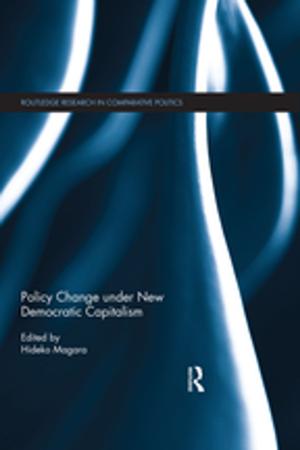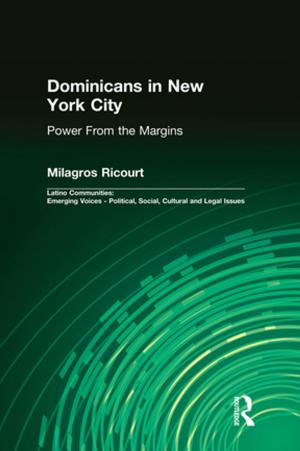| Author: | Shelley Angelil-Carter | ISBN: | 9781317882107 |
| Publisher: | Taylor and Francis | Publication: | June 11, 2014 |
| Imprint: | Routledge | Language: | English |
| Author: | Shelley Angelil-Carter |
| ISBN: | 9781317882107 |
| Publisher: | Taylor and Francis |
| Publication: | June 11, 2014 |
| Imprint: | Routledge |
| Language: | English |
Real Language Series
General Editors-
Jennifer Coates, Jenny Cheshire and Euan Reid
This is a sociolinguistic series about the relationships between language, society and social change. Books in the series draw on natural language data from a wide range of social contexts. The series takes a critical approach to the subject, challenging current orthodoxies, and dealing with familiar topics in new ways.
The topic of plagiarism is a highly contentious issue and one that is of growing interest and importance in higher education across the world. Stolen Language? Plagiarism in Writing uncovers the reasons why students plagiarize, and explains what can be done about it. It challenges the concepts of original authorship of language, tracing the notion of plagiarism to the introduction of copyright laws in the eighteenth century. The analysis presented in this book explores plagiarism as complex and contested, and suggests that in student academic writing it may be the surface manifestation of learning difficulties related to the educational environment, the nature of academic discourse and the nature of language.
Underlying the concept of plagiarism is the premise that meaning is made by the individual, using the system of language at his or her disposal. The words and ideas then belong to the individual who first thought of them, or who first used these words in a particular way. New understandings, that language and cognition are fundamentally social and cultural, contest the idea of 'original thought' or 'original language'. In addition, what constitutes plagiarism differs depending on the genre and context of writing.
Stolen Language shows that there is in any good writing an authorial presence, an authorial voice which is particularly difficult for the novice writer to control when constructing an essay based on multiple texts. Written in a unique and accessible way, the book also looks at the particular difficulties experienced by writers of English as an additional language and provides a practical framework for academics and teachers of writing on how to develop authorial voice and critical thinking in the student writer.
Real Language Series
General Editors-
Jennifer Coates, Jenny Cheshire and Euan Reid
This is a sociolinguistic series about the relationships between language, society and social change. Books in the series draw on natural language data from a wide range of social contexts. The series takes a critical approach to the subject, challenging current orthodoxies, and dealing with familiar topics in new ways.
The topic of plagiarism is a highly contentious issue and one that is of growing interest and importance in higher education across the world. Stolen Language? Plagiarism in Writing uncovers the reasons why students plagiarize, and explains what can be done about it. It challenges the concepts of original authorship of language, tracing the notion of plagiarism to the introduction of copyright laws in the eighteenth century. The analysis presented in this book explores plagiarism as complex and contested, and suggests that in student academic writing it may be the surface manifestation of learning difficulties related to the educational environment, the nature of academic discourse and the nature of language.
Underlying the concept of plagiarism is the premise that meaning is made by the individual, using the system of language at his or her disposal. The words and ideas then belong to the individual who first thought of them, or who first used these words in a particular way. New understandings, that language and cognition are fundamentally social and cultural, contest the idea of 'original thought' or 'original language'. In addition, what constitutes plagiarism differs depending on the genre and context of writing.
Stolen Language shows that there is in any good writing an authorial presence, an authorial voice which is particularly difficult for the novice writer to control when constructing an essay based on multiple texts. Written in a unique and accessible way, the book also looks at the particular difficulties experienced by writers of English as an additional language and provides a practical framework for academics and teachers of writing on how to develop authorial voice and critical thinking in the student writer.















